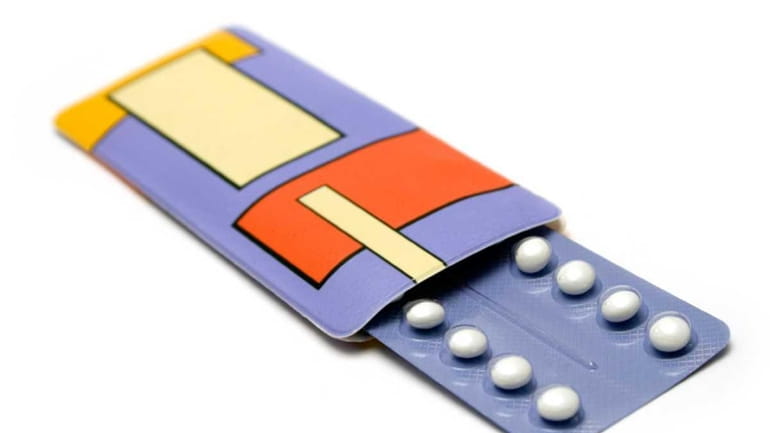The pill is just one birth control option

Birth control pills. Credit: iStock (Undated)
When it comes to contraception, the pill can still be, well, a bit of a pill.
It may cause side effects in those who take it, a daily dose can be a bit of a hassle for busy women, and it's not medically appropriate for everyone. However, birth control pills have changed over the decades, and millions still rely on them without problems.
A variety of other birth-control options are available to women today as well, from new devices to an old standby -- the intrauterine device, or IUD -- that's back in the public eye.
"We're getting better at tailoring contraception to a woman's individual needs," said Dr. Jill Maura Rabin, a Long Island obstetrician-gynecologist. "That gives women more control over reproduction."
Cost, however, can be a problem. Not all insurers pay for contraception, and treatments can be expensive.
Here are some of the latest options in contraceptive methods.
In a big contrast with the past, birth control pills today contain much smaller doses of hormones, said Rabin, who's head of urogynecology at the Long Island Jewish Medical Center in New Hyde Park. "With hormones, less is always more," she said. "You use the least effective dose that you can because you get fewer side effects."
Birth control pills can cause side effects -- and smokers face higher risks than others -- but they're also linked to beneficial effects that include lighter menstrual periods and less likelihood of pelvic inflammatory disease, Rabin said.
And now there are readily available "extended cycle" pills, which allow women to time their periods and make them less frequent.
Obstetrician-gynecologist Dr. Gae Rodke, a voluntary senior attending physician at St. Luke's-Roosevelt Hospital Center in Manhattan who formerly practiced on Long Island, is a fan of extended-cycle pills that women take for 24 days and then stop for four days. "They give people good cycle control," she said. "You know when you're going to bleed and when you're not. The periods tend to be very light and very short, but there's enough there to reassure women that they're not pregnant."
Women with heavy periods and cramps or severe premenstrual symptoms may want to take birth control pills even if they don't need them to prevent pregnancy because they can reduce symptoms, Rodke said. But she said she's skeptical of taking the pills "just for the convenience of changing one's cycle."
If a woman does want to take the pills to reschedule periods so they don't occur during, say, a wedding or vacation, Rodke noted that they need to plan ahead. One problem is that it takes a few months to develop a regular cycle, she said.
1. IMPLANTABLE CONTRACEPTIVES These are a "wonderful option," Rabin said, and one type is easily placed in the arm with a local anesthetic. However, they can cause spotting.
2. IUDs The intrauterine device has recovered from the bad press of the 1970s. "There are years when I didn't put an IUD in; now, I'm probably putting in several a month," Rodke said.
Rabin added that some women incorrectly believe that a 5- or 10-year IUD must be worn for the entire time. But in fact, she said, the device can be removed earlier if a woman decides she wants to become pregnant.
3. NUVARING Women place this flexible ring, about 2 inches in diameter, in their vagina for three weeks and then take it out for a week to menstruate. When inside, the device releases a continuous low dose of hormones to prevent pregnancy.
"It doesn't require you to interrupt amorous activity to put a diaphragm in," Rodke said. "You're ready whenever."
4. STERILIZATION Some women are turning to less-invasive procedures than the traditional tubal ligation. Overall, sterilization is one of the most common types of birth control, according to the American Congress of Obstetricians and Gynecologists.
With the variety of approaches available, Rodke said, women should be aware that it might take time to find the option that best meets their needs.
Men can take on some of the responsibility by using a condom or getting a vasectomy. However, there's no contraceptive pill for men, and researchers can't promise one anytime soon.
Year-round tick season for LI ... Commack housing development ... Bethpage Air Show ... Isles game 3
Year-round tick season for LI ... Commack housing development ... Bethpage Air Show ... Isles game 3
